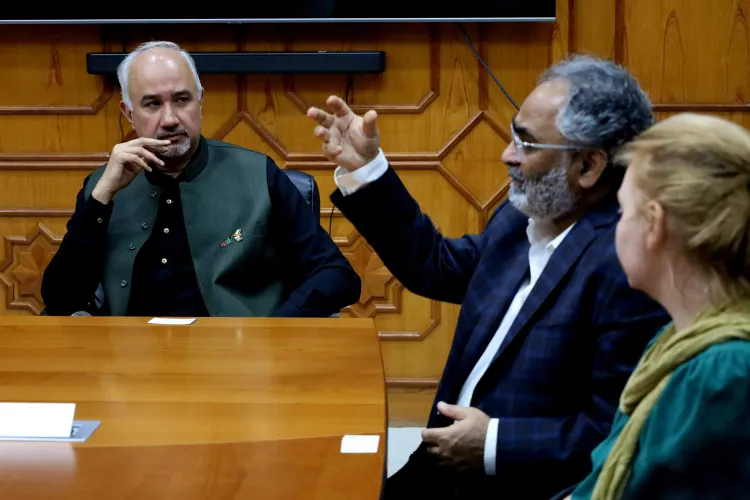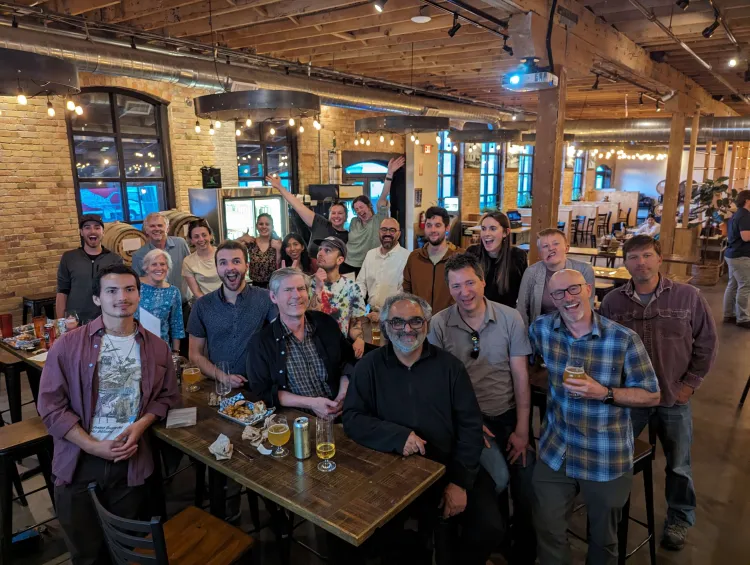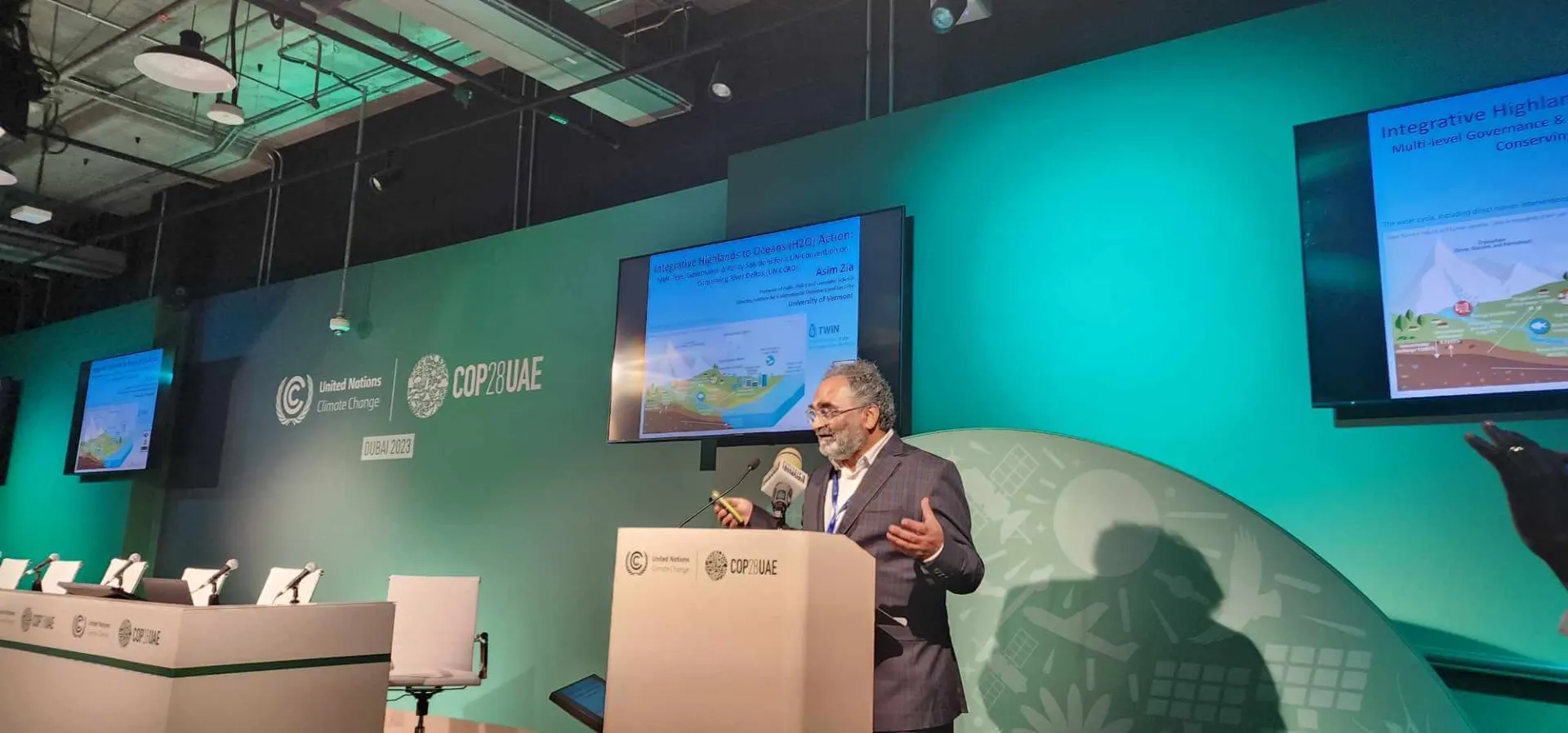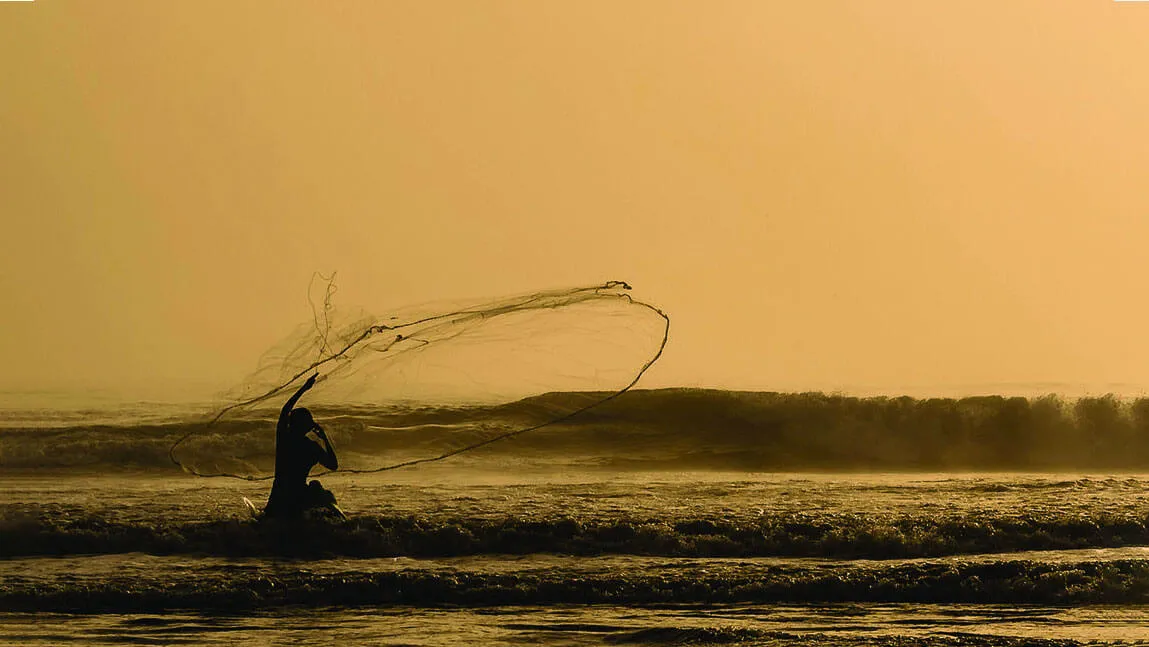UVM's Dr. Asim Zia was chosen as one of this year's elite group who will be welcomed into the National Academy of Public Administration (NAPA)at an induction ceremony on November 2. Induction as a fellow is a prestigious recognition of Dr. Zia’s many substantial contributions to public policy, governance, and applied science. Dr. Zia is Professor of Public Policy in the Department of Community Development and Applied Economics. He is also a GUND Fellow, Senior Faculty Advisor of the Water Resources Institute, Co-Director of the Social Ecological Gaming and Simulation (SEGS) Lab, and Associate Dean of Research for the College of Agriculture and Life Sciences (CALS).
“This is one of the greatest honors in my field to be nominated for induction into the National Academy.”
Dr. Zia joined UVM in 2008 with the goal of leading and strengthening the Master of Public Administration (MPA) program, while also expanding public policy research and education. The MPA program became accredited in 2013 and reached among the top 100 programs in the nation; however, Zia’s impact at UVM has been much broader than this single program’s success. He was the founding director of UVM’s doctoral program in Sustainable Development Policy, Economics, and Governance, and cross-college graduate certificate program in Community Resilience and Planning. Now serving as the Associate Dean of Research for the College of Agriculture and Life Sciences (CALS), Zia has helped shape an impressive volume of interdisciplinary research around responsible AI, biosecurity policy, intergovernmental systems, and environmental security, all with a strong emphasis on shoring up democracy and improving accountability.
“A lot of my focus has been on building democratic systems in intergovernmental contexts… I’ve published books and papers on how to bring about democracy and accountability in relationships between federal, state, and local governments—and also from an international lens.”
In his leadership role, Zia is spearheading efforts to build research capacity, strengthen graduate education, and position CALS as a driver of UVM’s recently obtained R1 research status. His priorities include integrating research, education, and Extension to better fulfill the university’s land-grant mission.
“We can do better in implementing the land-grant mission—by connecting faculty, Extension, and students in integrated projects that improve community resilience, farm sustainability, and workforce development.”
Dr. Zia is spearheading a strategic planning process that includes faculty focus groups, stakeholder engagement, and will tie into a broader community needs assessment that is underway. Four emerging research themes: regenerative agriculture and resilient landscapes, One Health and biosecurity, digital agriculture and smart rural communities, and sustainable food systems and healthy communities. All four areas are guiding the future direction of CALS.

Zia is also a leading voice in the intersection of artificial intelligence and public governance, with federally funded projects exploring how to design trustworthy AI systems for policy-making and sustainability. His initiative, “AI for Governance and Governance of AI,” explores the integration of AI into public affairs education and curricula, the design of regulatory frameworks for ethical AI use, and the application of AI to promote sustainability and evidence-based policy. His AI for sustainability research has been funded by NSF, NOAA, and the US State Department.
“We can use AI not just for marketing or profit, but to stimulate sustainable behaviors, support performance-based payments, and generate evidence for policymaking.”
His work in AI will be of particular importance as he contributes to the NAPA Technology Leadership Panel.
“One of the grand challenges NAPA has launched is about making government AI-ready… I’ve been working on how we can design trustworthy AI systems that support decision-making from local to federal agencies.”
Zia will also be actively engaged in two other NAPA standing panels:
- International Affairs Panel – focusing on global governance and environmental diplomacy.
- Democracy and Intergovernmental Systems Panel – addressing urgent challenges in protecting democratic institutions.
Dr. Zia’s global leadership extends beyond academia and national policy. He currently serves as technical lead on a multi-year initiative to draft a United Nations Convention for River Deltas, aimed at protecting vulnerable delta regions from climate change, sea level rise, and upstream development impacts.
“River deltas are sinking faster than oceans are rising. These communities are facing the brunt of global climate impacts—often without having caused them,” Zia explained. “This convention is about equity. It’s about ensuring that those most affected by climate change receive the support they need to build resilience. We’re working to build international consensus around equitable solutions, including nature-based resilience strategies and transboundary cooperation.”
The proposed convention calls for international cooperation to address transboundary river basin challenges, promote nature-based solutions, and ensure that upstream development, such as dam construction, does not exacerbate downstream vulnerabilities. Zia and his collaborators aim to secure support from at least 30 countries ahead of a UN General Assembly vote in 2029.

One characteristic of Zia that is a defining hallmark of his work is his optimism. He plans to combat the cultural resistance to scientific ideas by hosting science salons that include scientists, policymakers, and the general public. He hopes to use responsible precision agriculture to help farmers know precisely when to water and how much to fertilize. One of his projects examines how to incentivize farmers to adopt biosecurity measures on their farms by utilizing a gamification model to test policy assumptions. He views the wars in the countries where he conducts water security research as not entirely an impediment, because he believes that science can be used to bring opposing sides together around issues on which they can agree, and might actually stimulate peace. He will share his findings from his work on AI, climate, and water security with operational policy makers at the COP30 meeting in Belém, Brazil, in November, spreading his research along with his optimism.
“Our collective actions have led us through many acute challenges in the past, and we have the collective intelligence and agency to weave our path through current crises of lack of trust in government and democratic processes.”
Zia believes that serving as a fellow in NAPA will accentuate his impact in national and international policy arenas to foster democratic governance, ethical AI, and sustainable resilience.

